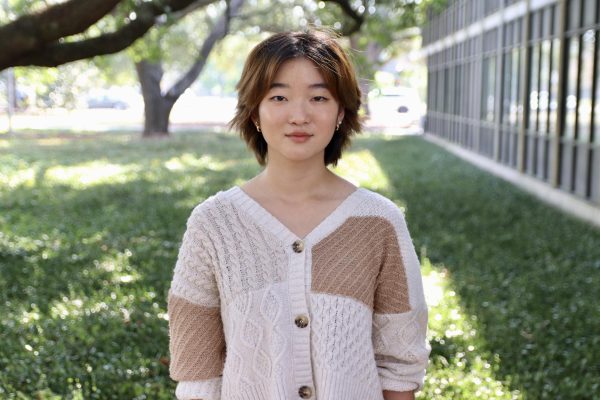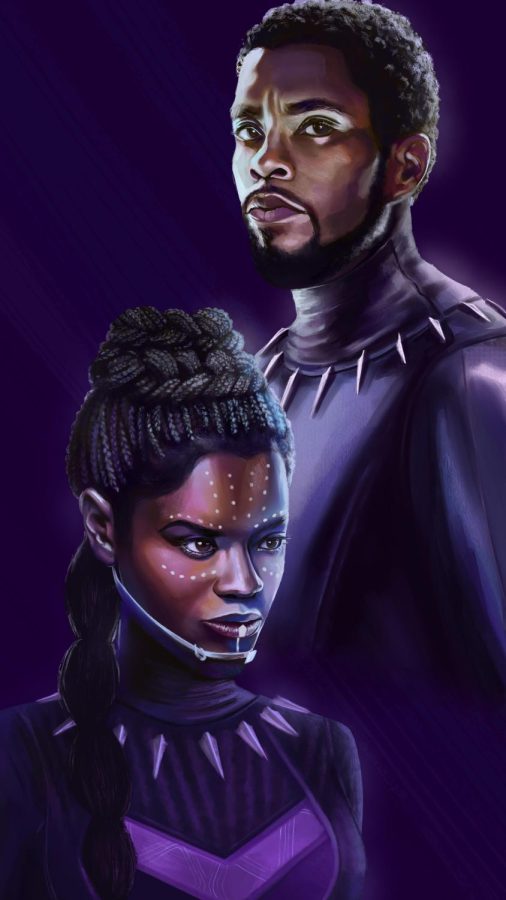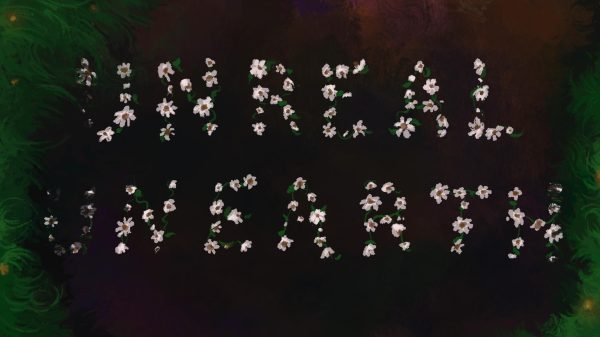OPINION | “Black Panther: Wakanda Forever” is an ode to Chadwick Boseman’s legacy
Warning: Spoilers ahead for “Black Panther: Wakanda Forever.”
On Nov. 11, the Marvel Cinematic Universe (MCU) released “Black Panther: Wakanda Forever.”
Chadwick Boseman, the previous actor for T’Challa the “Black Panther” lost his battle with prostate cancer on Aug. 28, 2020. Arguably his most recognizable role was T’Challa in the MCU. He debuted this role in 2016’s “Captain America: Civil War,” and returned for the solo project, “Black Panther,” directed by Ryan Coogler.
Following Boseman’s death, there were questions about who will take on the role of Black Panther and whether the MCU would recast T’Challa. They ultimately decided to follow comic book lore of his sister Shuri taking up the Black Panther.
“Black Panther: Wakanda Forever” starts with Letitia Wright’s Shuri trying to re-create the heart-shaped herb so T’Challa can be cured of an undisclosed illness. While in the process, Queen Ramonda, played by Angela Bassett, delivers the heartbreaking news that sets the narrative for the movie: — T’Challa has passed away.
One year later, Wakanda is still grieving his death. They also deal with other countries trying to steal vibranium from Wakandan Outposts. The movie states France wanted to get their hands on vibranium to make weapons, contrasting T’Challa’s goal which was to impact lives of low-income black families.
A major theme of the movie is the idea of accepting a loved one’s death. As the movie progresses, the audience starts to see how each character deals with the loss of T’Challa. Shuri kept herself busy with work and her studies, constantly in the lab and preferring not to talk about her brother.
This is what makes Shuri such a compelling character in the film. Most people can relate to her because they rather suffer alone in grief rather than show their emotions to others. This type of internal struggle is what guides Shuri down the path of vengeance, especially after the death of Queen Ramonda.
Queen Ramonda and Nakia have come to terms with T’Challa’s death, while M’Baku takes on the brotherly role to Shuri. He guides her throughout the film and offers her words of encouragement when she is down.
M’Baku, in the film, does everything T’Challa would’ve wanted him to do and more. He adds comedic relief while being extremely vulnerable to the people he loves most.
Wakanda Forever also introduces Tenoch Huerta as Namor. In the movie, Namor explains his backstory to Shuri as a victim of slavery. As a way to retaliate, Namor burned down the slave owner’s plantation and killed every person involved. From that point, Namor made it his mission to protect his people from the surface world.
Much like Killmonger from the last movie, Coogler delivers again, giving the audience a potent antagonist with great motivations. Not only is Namor easy to root for, but you can understand where he is coming from.
You understand his pain and anger towards the surface world and quickly realize why he wants Shuri to join him.
Despite his request, Shuri declines Namor because he wants her to kill Dominique Thorne’s character Riri Williams, who was innocent of what he was accusing her of.
This disagreement kicks off the conflict between Wakanda and Talokan. In the third act, Shuri has a chance to kill Namor and get revenge. However, she gets a flashback to the people of Talokan; she remembers the families, the kids playing around and the people embracing one another.
At that moment, she realizes killing Namor won’’t bring back her mother or brother.
Namor and Shuri both agree that they share the same problem, and instead of fighting each other, they should join together against the common enemy: colonialism.
Colonialism took away Namor’s people, and it’s what Wakanda is currently fighting.
This character journey Shuri went through is one of the best in the entire MCU. We see a broken young woman dealing with incredible loss from the start. The pain deepens after her mother’s death, sending her down a path of vengeance. Lastly, she overcomes her grief and pain and turns it into something beautiful.
Wright gives the best performance in any phase four MCU project, and she has quickly become one of the best protagonists for the future of these movies.
Bassett also shines in the film; every scene she’s in is breathtaking, and she delivers arguably one of the most incredible acting performances of her career.
The action in the movie is engaging and will have you on the edge of your seat. Combine the great action with stunning visuals, and you’re left with one of the best Marvel projects from top to bottom.
T’Challa’s presence is felt throughout the entire movie. The way the characters in the film talk about him, you can tell he changed their lives for the better.
The final scene of the film is when Shuri goes to burn her funeral dress, as burning funeral clothes is a way to signify the end of the grieving process in Wakanda. As she’s burning the clothes, she closes her eyes, and we get a small montage of Shuri’s memories of her brother. Every scene is from the original Black Panther movie, so the audience gets to see Boseman for a final time so that we can let him go, just like Shuri.
This incredibly emotional scene will have audiences teary-eyed as they, too, will start to remember the man that Boseman was.
All-in-all, “Black Panther: Wakanda Forever” is a beautifully crafted movie with unforgettable characters, engaging action scenes, and stunning visuals. This movie marks one of the most mature MCU projects and is the perfect love letter to Boseman.
“In my culture, death is not the end. It’s more of a stepping off point. You reach out with both hands, and Bast and Sekhmet, they lead you into the green veld where… you can run forever.”
– Chadwick Boseman, “Captain America: Civil War.”
Rest in peace, Chadwick Boseman.
Your donation will support The Lion's Roar student journalists at Southeastern Louisiana University.
In addition, your contribution will allow us to cover our annual website hosting costs.
No gift is too small.

Troy Allen is a senior mass communication major with a concentration in sports journalism. He joined The Lion’s Roar as a staff reporter in September...

Yumi Domangue is a double major in mechatronics engineering technology and new media and animation. She joined Student Publications in the Fall of 2021...






